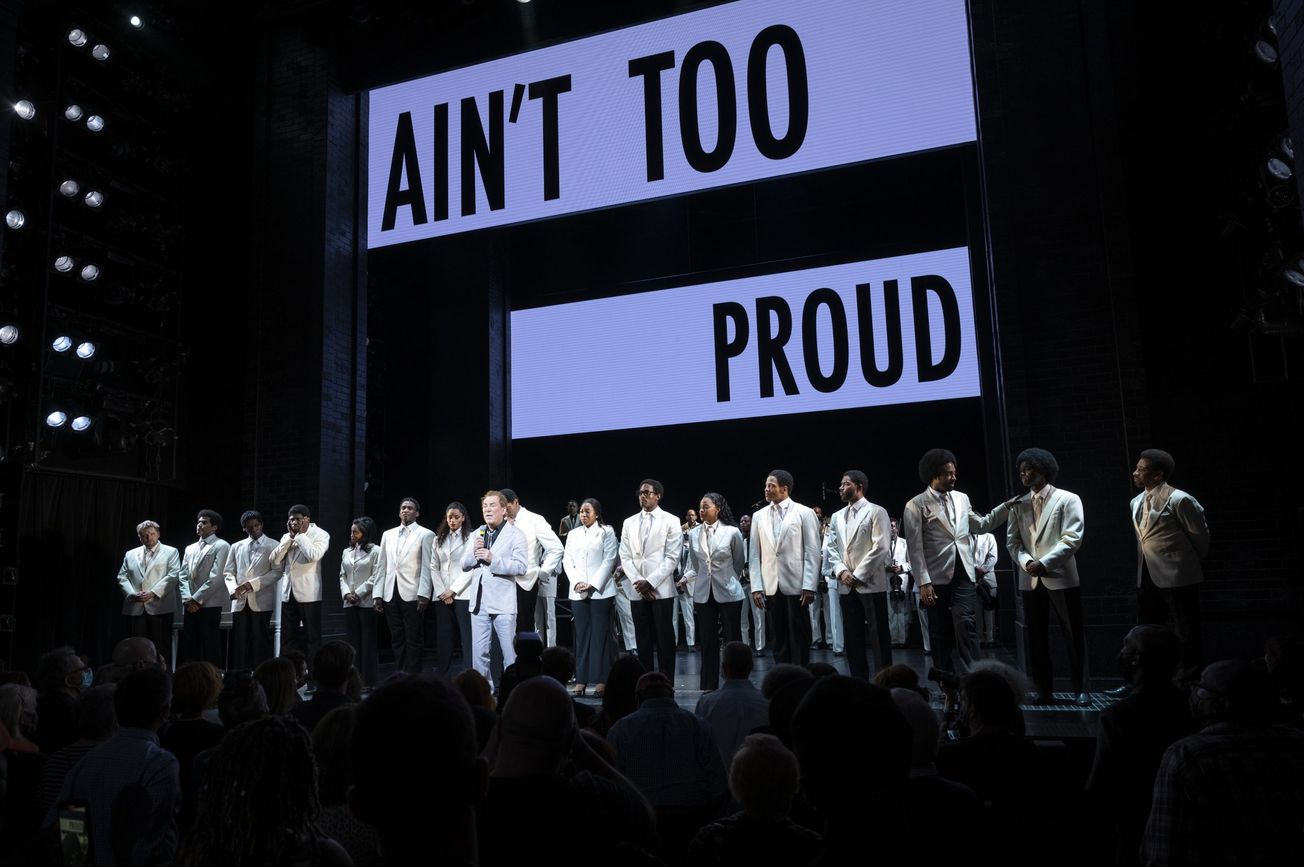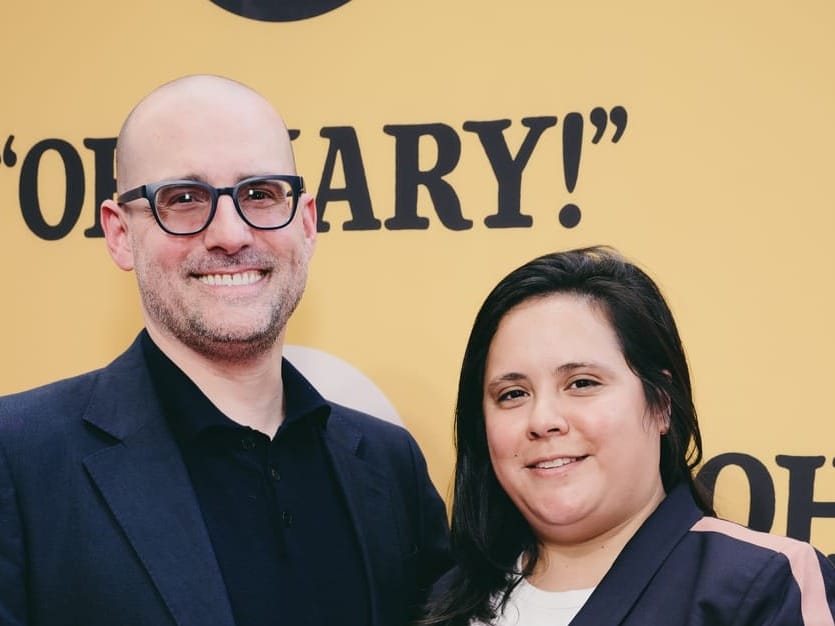As Broadway productions are forced to close or take a break in response to rising COVID-19 case rates, producers are grappling with the traditional Broadway model.
The Broadway League recently proposed a 50% pay cut for employees of a production when a show is canceled due to a rise in COVID-19 cases, according to sources familiar with the matter. Unions have thus far rejected this proposal, which would return employees to full salary when the production resumes.
The proposal comes as five Broadway productions posted closing notices in recent weeks. “Mrs. Doubtfire” recently announced a nine-week hiatus for the show starting this week. Productions have cited a rise in cases related to the Omicron variant, which has led to show cancellations, as part of the reasoning for these decisions.
When facing these challenges, Kevin McCollum, producer of “Mrs. Doubtfire” and “Six,” said Broadway producers currently have two options at their disposal: closing the show or trying to keep it open. No one is at fault for this binary choice, McCollum said, but the desire to find another way forward has taken on more urgency in the past 10 days.
“Everybody’s working really, really hard. And there’s no one answer, except we all have to come together and find a solution if we are going to stay open as an industry,” McCollum said. “The industry needs a new deal that is not intrinsically tied to eight shows a week, every week, during a pandemic.”
The Daily Beast first reported news of the proposed pay cut.
Presented with the option for the pay cuts, some union leaders were willing to consider the proposal if producers revealed how much money each production retained from the Shuttered Venue Operators Grants, according to sources. Productions were eligible to receive up to $10 million from the federal grant program and the money was earmarked to be used for reopening costs, as well as for COVID-19 testing and other production costs. Some producers say that money has already been spent.
Broadway League President Charlotte St. Martin declined to comment on the offer made to unions.
McCollum was able to broker a deal in which “Mrs. Doubtfire” will close for nine weeks and then return to the Stephen Sondheim Theater, owned by Roundabout Theatre Company, on March 15. This has not been standard practice in the industry and largely depends on the willingness of the theater owner.
In order to enact the hiatus, McCollum said he needed to give company members one-week’s notice, per the collective bargaining agreements for a show’s closure. The production then ends its contracts with the actors and crew members, clears out its treasuries and returns tickets. While he retains the theater, McCollum notes that there’s a risk the actors, who are not paid during the hiatus, choose not to return.
The total cost of the hiatus is little more than $500,000, McCollum said, which includes “drastically reduced rent” payments for the theater, as well as the cost of rehiring treasurers when tickets are put back on sale, paying for marketing around the on-sale date and conducting rehearsals before the show’s return. This pales in comparison to the show’s projected loss of at least $3.5 million during that time period, McCollum said.
“These were the only tools I had that was the best path forward to ensure the long-term employment of the company,” he said.
As case numbers rose across Broadway, McCollum said that costs for his production, which tested on a daily basis, increased. Weekly costs for testing the 115 cast, crew and other staff members reached close to $60,000 — due to the closure of some labs and the need for rushed results — compared to about $18,000 before the surge in cases.
This was accompanied by decreasing advance sales — the daily wrap at “Mrs. Doubtfire” went from $175,000 to $50,000 — as consumer confidence took a hit due to the slate of Broadway shows canceling. McCollum said his family-friendly production was also contending with confusion from theatergoers over the recently announced vaccination policy for children.
When “Mrs. Doutbfire” went dark for 11 shows, from Dec. 12 to Dec. 21, the production lost $1.5 million, in what would typically be a high-grossing holiday period. McCollum made the decision to put the show on hiatus.
While a show’s closure can ultimately be traced to its finances, productions have also been contending with a lack of understudy coverage when multiple cast members test positive for COVID-19. This was the case at “Thoughts of a Colored Man,” which announced its closure on Dec. 23.
Going into the run, producer Brian Moreland said he knew the play could not sustain multiple days of cancellation related to the virus — as a new show, “Thoughts of a Colored Man” was not eligible for federal grant money. This fear was brought to a forefront after the 10-day cancellation of “Aladdin” this fall, Moreland said.
When the highly transmissible Omicron virus spread throughout New York City and Broadway companies, the production was not able to find enough covers as members of its seven-person cast entered staggered 10-day quarantines. Before closing, “Thoughts of a Colored Man” had two understudies on stage, as well as playwright Keenan Scott II and Jody Renard, an actor from the regional run of the show that had been called in by the production.
“And then we got our first positive case. And then we had a second positive and a third positive and a fourth positive and a fifth positive, and once we had those numbers climb into the cast itself, we couldn’t cover it,” Moreland said.
The winter typically sees a number of Broadway closures, but this time it feels novel because the closures are unexpected, said Vivek Tiwary, a producer on “Jagged Little Pill,” which played its final performance on Dec. 17.
“We thought we were returning in October to a long and healthy show. We certainly never saw that coming,” Tiwary said. “What’s happening is shows that wanted to play for longer are finding that they are unable to do so. That pain is not over yet.”
The show’s closure was joined by “Waitress” and “Ain’t Too Proud” and “Flying Over Sunset,” which will both play their final performance on Jan. 16.
Still, producers speak with optimism about the industry’s path forward. McCollum sees the potential for a return in consumer confidence in March, as case numbers hopefully decline. Tiwary plans to produce a number of new projects and the leadership team of “Jagged Little Pill” has hinted at a possible return for the show.
The question is when exactly that path will clear and what will happen in the interim.
“Broadway will see that ‘springtime’ resurgence, but whether that’s actually in the spring, or whether that’s a metaphorical springtime, I don’t know,” Tiwary said.


























































